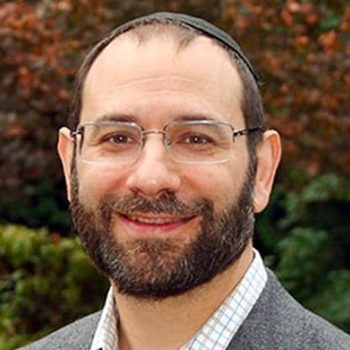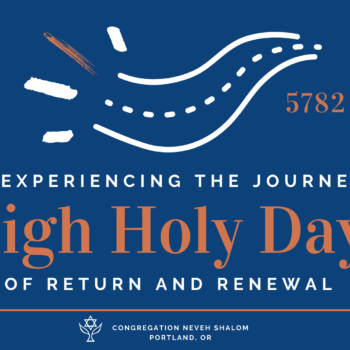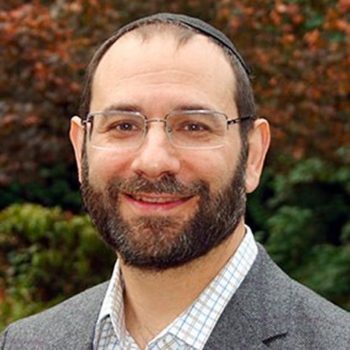In between Rosh Hashanah and Yom Kippur, I found myself making four different dinners one evening. I wanted to make sure that there was something my father-in-law, my two boys, and I could all eat. (Laura was busy with clients and told us to eat on our own.) Sometimes it is possible to stumble upon one dish that satisfies all of us, but that is rare. My chef training allowed me to pull off this variety in relatively short order, but still…four different dinners?
Rosh Hashanah Erev Rosh Hashanah 5782 – September 6, 2021 Rabbi David Kosak, When Loss Renews Itself as Hope – Text Rosh Hashanah 5782 (Day 1) – September 7, 2021 Rabbi David Kosak, Truing the Wellness Wheel: Finding Shleimut in a Broken World – Text Rosh Hashanah 5782 (Day 1) – September 7, 2021 Rabbi Eve Posen, Shehechiyanu – Text Watch on Video: Yom Kippur Erev Yom Kippur ... Read More
Tomorrow night marks Leil Selichot. In the Sephardic tradition, special penitential prayers are recited throughout the month of Elul as preparation for the Days of Awe. While Ashkenazic, or European Jews, also use the month of Elul to focus on our High Holiday work of repair, return, and atonement, the penitential prayers of Selichot are limited to the Saturday night the week before Rosh Hashanah, Leil Selichot.
Ribbono Shel Olam, You whose eye is on all living creatures, We turn our eyes to You. Sometimes Your world has so much pain, We lose our way in the devastation. Our hearts and minds blur beneath the weight.
Last week’s Oasis Songs was dedicated to the ancient Jewish custom of expanding community by setting up an eiruv, a Jewish boundary that extends the distance one can travel on Shabbat. Let’s continue reflecting on this custom.
According to the Bible, one is supposed to stay close to home over Shabbat. It was a great rule in ancient times because it ensured strong family and communal ties. Anyone who has ever fought rush-hour traffic gets why such a rule is important. As Jewish towns and neighborhoods expanded, however, the Torah’s law made it more difficult to create meaningful community—the exact opposite of its original mandate.
There was a moment in Silicon Valley history when entrepreneurs starting new enterprises had difficulty attracting venture capital dollars if they hadn’t already had at least one start-up failure under their belt. The mantra that developed was “fail fast, fail often.” The courageous contrarianism conveyed in this statement is a potent reminder that in life, failure is unavoidable and can sometimes produce new insights. Failure, in other words, can often be the fertile soil on which future growth depends.







